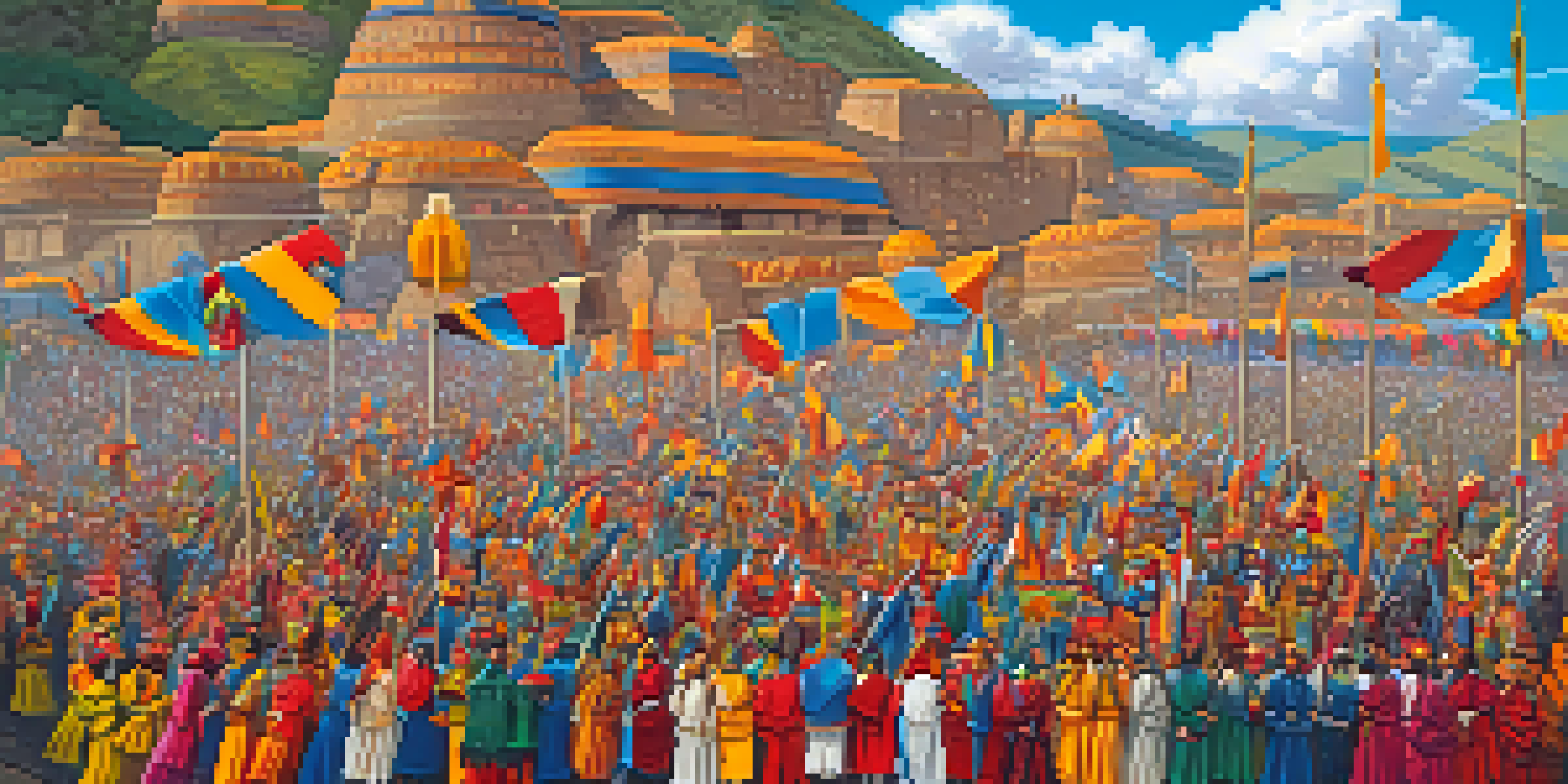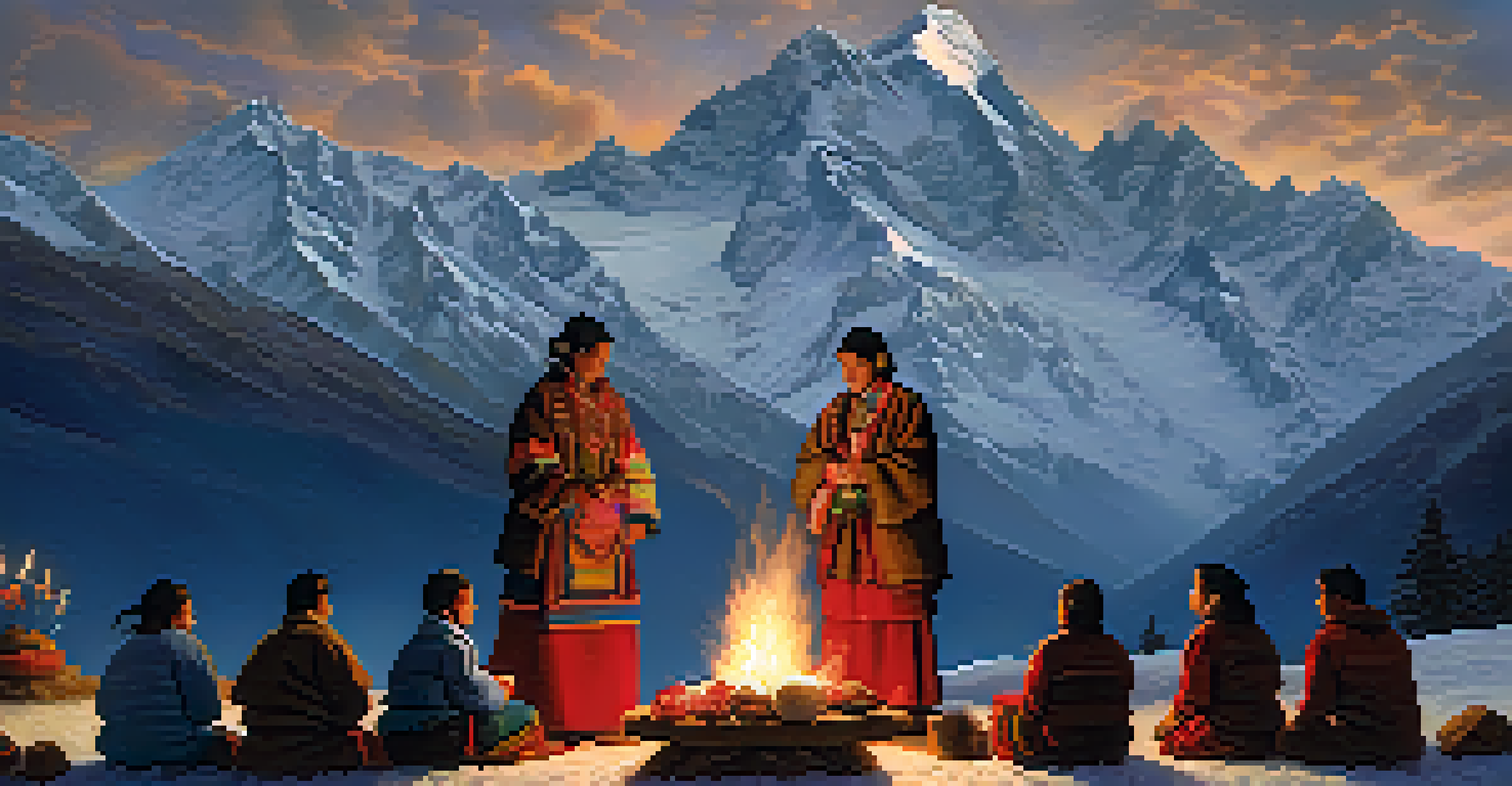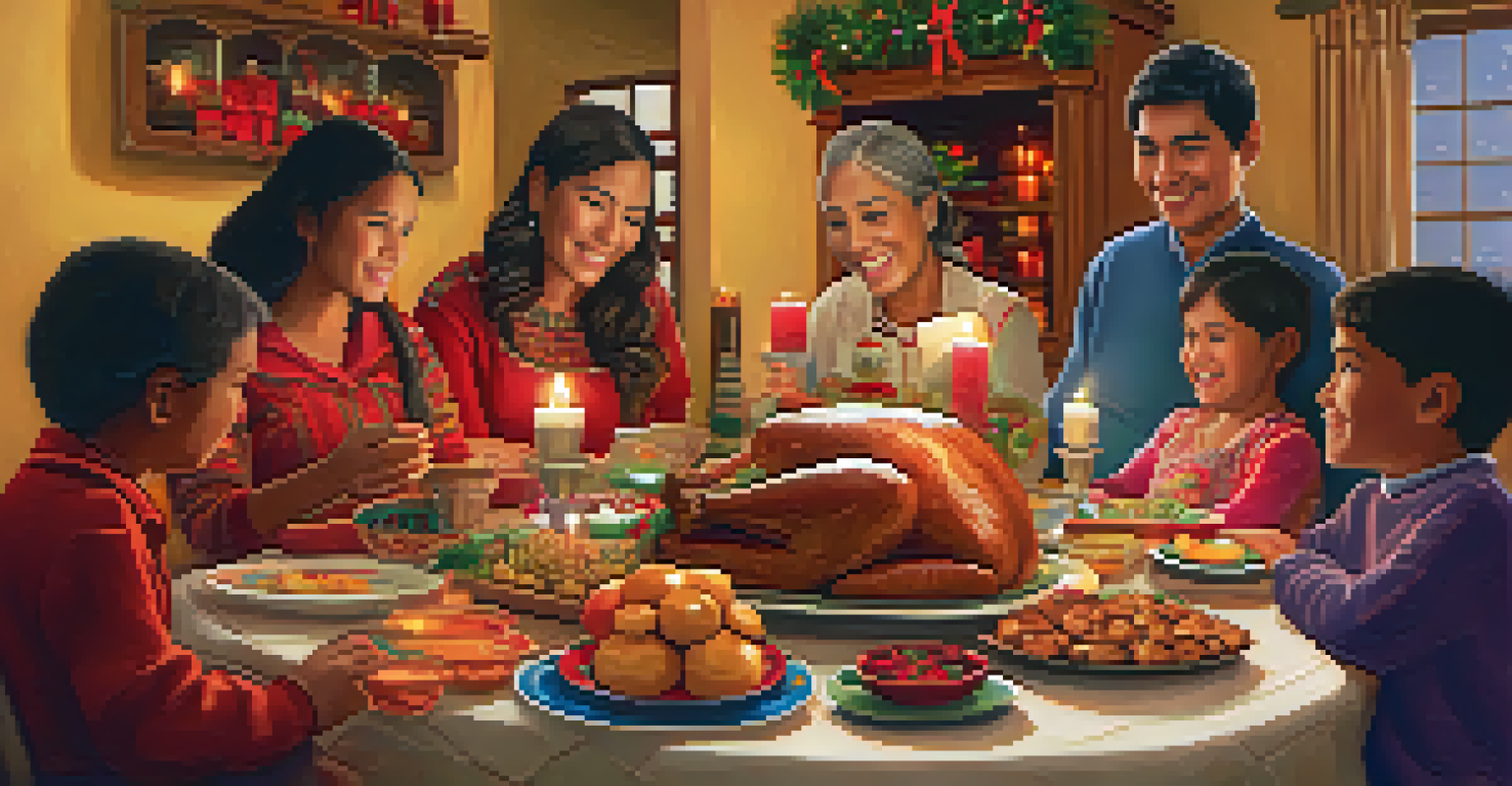Winter Celebrations in Peru: A Guide to Unique Festivals

Introduction to Peruvian Winter Celebrations
Winter in Peru, from June to September, is a time of rich cultural celebrations. These festivals are vibrant, showcasing the diverse traditions and customs of the country. Many of these events are rooted in indigenous practices, blending ancient rituals with modern festivities.
Celebrations are a way of honoring our cultural heritage and sharing it with the world.
As the Andes Mountains blanket in coolness, communities come alive with music, dance, and colorful attire. Each festival reflects the local culture, making winter a unique time to experience Peru's heritage. From the highlands to coastal towns, every region has something special to offer.
Visitors can immerse themselves in these celebrations, gaining insights into the Peruvian way of life. Whether you’re a culture enthusiast or just curious, winter celebrations in Peru promise unforgettable experiences.
Inti Raymi: The Festival of the Sun
One of the most famous winter celebrations in Peru is Inti Raymi, or the Festival of the Sun, held in Cusco. This ancient Incan festival takes place on June 24th to honor the sun god, Inti, and to ensure a good harvest. The event features a colorful reenactment of rituals that were performed by the Incas centuries ago.

During Inti Raymi, locals and tourists gather to witness vibrant processions, traditional music, and elaborate costumes. The main event occurs at the Sacsayhuamán archaeological site, where thousands participate in the festivities. The atmosphere is electric, filled with joy and a sense of community.
Peru's Vibrant Winter Festivals
Winter in Peru is a time of rich cultural celebrations that showcase the diverse traditions and customs across the country.
For those visiting Cusco, attending Inti Raymi is a must. It’s a unique opportunity to experience Peru's rich history and the enduring significance of the sun in Andean culture.
Celebrating Virgen de la Candelaria in Puno
Another captivating winter celebration is the Fiesta de la Virgen de la Candelaria, celebrated in Puno during February. This festival honors the Virgin of Candelaria, the patron saint of the city, and features a blend of religious and cultural elements. It's one of the largest and most important festivals in Peru, drawing crowds from all over.
Festivals are the heartbeat of a community, expressing its values, traditions, and connections.
The celebration includes vibrant parades, traditional dances, and beautiful costumes that reflect Andean heritage. Dancers perform in elaborate outfits, showcasing their skills and telling stories through movement. The event culminates with a grand procession, where the statue of the Virgin is carried through the streets.
Attending this festival allows visitors to witness the deep devotion of the local community. It's a powerful reminder of the intertwining of faith and culture in Peruvian society.
Snowy Celebrations in the Andes: Huaylas Festival
In the northern region of Ancash, the Huaylas Festival celebrates the arrival of winter with various activities. Held in June, this festival is a tribute to the Andean culture and the beauty of the snowy mountains. The celebration includes traditional music, dance, and colorful parades that reflect the region's identity.
Local communities come together to showcase their crafts, food, and agricultural products, allowing visitors to experience the region's abundance. Traditional Andean instruments like the charango and pan flute fill the air with joyous melodies. The festival also highlights the importance of community bonding and preserving cultural heritage.
Inti Raymi Celebrates Sun God
The Inti Raymi festival in Cusco honors the sun god Inti with colorful processions and rituals, reflecting the significance of the sun in Andean culture.
For anyone interested in experiencing the heart of Andean culture, the Huaylas Festival is an opportunity not to be missed. The unity and pride displayed during this celebration are truly inspiring.
Christmas Traditions in Peru: A Unique Twist
Christmas in Peru is celebrated in a unique and colorful way, especially in the winter season. Although it takes place on December 25th, the festive atmosphere lingers through the winter months. Many families gather to celebrate with traditional foods, music, and religious ceremonies, making it a heartwarming time.
One of the most distinctive aspects of Peruvian Christmas is the celebration of 'Navidad,' which includes the preparation of special dishes like 'pavo' (turkey) and 'panetón' (a sweet bread). Midnight Mass, or 'Misa de Gallo,' is a key part of the Christmas Eve festivities, bringing families together in prayer and celebration.
The joy of Christmas in Peru is palpable, filled with laughter, music, and community spirit. It's a beautiful time to connect with locals and experience their warm hospitality during this festive season.
Winter Solstice Celebrations: A Time of Reflection
The winter solstice, known as 'Inti Raymi' in Quechua culture, is another significant celebration in Peru. This event, occurring around June 21st, marks the shortest day of the year and the return of longer days. It’s a time for reflection, gratitude, and connection with nature.
During the solstice, various communities hold ceremonies that honor Pachamama (Mother Earth) and the sun. Offerings may include food, flowers, and other items to express gratitude for the earth's bounty. These rituals highlight the deep respect Andean cultures have for nature and its cycles.
Unique Christmas Traditions
Peruvian Christmas blends traditional foods and community spirit, creating a heartwarming celebration that lasts throughout the winter season.
Participating in a winter solstice celebration allows visitors to appreciate the spiritual connection the Andean people have with their environment. It’s a moment to pause, reflect, and recognize the beauty of the natural world.
Cultural Significance of Winter Festivals in Peru
Winter celebrations in Peru are more than just events; they are a reflection of the country’s rich cultural tapestry. Each festival offers a glimpse into the traditions, beliefs, and values of the Peruvian people. They serve as a reminder of the importance of community and the preservation of cultural heritage.
These festivals often incorporate elements of both indigenous and colonial influences, showcasing the resilience and adaptability of Peruvian culture. From ancient rituals to contemporary festivities, the spirit of celebration remains strong across generations.

Visitors to Peru during winter can witness this vibrant cultural landscape firsthand. Engaging in these celebrations fosters a deeper understanding and appreciation of Peru's diverse heritage.
Conclusion: Embrace the Joy of Winter Celebrations
Winter in Peru is a magical time filled with celebrations that reflect the country’s rich cultural heritage. From the grandeur of Inti Raymi to the warmth of Christmas traditions, each festival offers a unique experience. These events not only bring joy to participants but also serve as a reminder of the importance of community and cultural identity.
As you plan your visit to Peru during the winter months, consider immersing yourself in these vibrant festivities. You’ll find that each celebration tells a story, inviting you to connect with the local culture in a meaningful way.
Embrace the joy and beauty of winter celebrations in Peru, and create memories that will last a lifetime. Each festival is a celebration of life, love, and the rich tapestry that makes Peru so special.